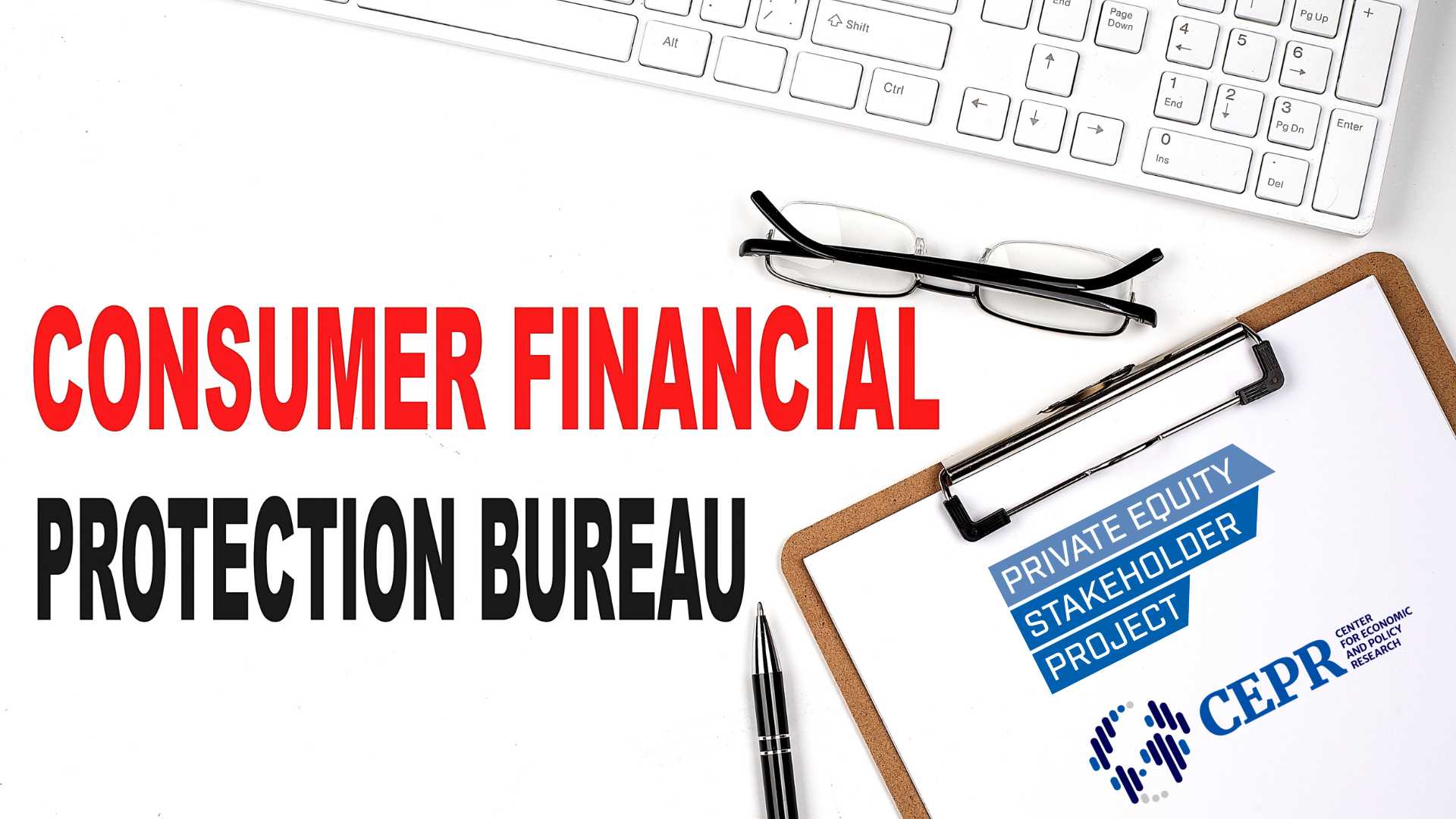
PESP and CEPR highlight need for regulatory changes to protect consumers from private equity-owned debt collectors
Comment letter to CFPB supports proposed Consumer Financial Protection Bureau Regulation V Amendment
August 14, 2024
The Private Equity Stakeholder Project (PESP) and the Center for Economic and Policy Research (CEPR) have jointly submitted a public comment letter to the Consumer Financial Protection Bureau (CFPB) regarding the proposed amendment to Regulation V, which implements the Fair Credit Reporting Act (FCRA).
This proposed rule aims to address the growing issue of medical debt by limiting creditors from obtaining or using information on medical debts for credit eligibility determinations. It would also prohibit consumer reporting agencies from giving creditors certain information on medical debts.
PESP and CEPR commend the CFPB’s proposed rule change as a critical step towards protecting patients from the unjust impacts of medical debt. The proposed amendment is seen as one of multiple solutions needed to mitigate the real harms resulting from inaccurate medical debt data held by private equity-owned debt collectors and others.
- Medical Debt and Credit Reporting: Medical debt that is reported to credit agencies creates barriers to credit access, despite being a poor indicator of financial responsibility. Third-party debt collectors, including those owned by private equity firms, often use this reporting to pressure patients into full debt repayment. The accuracy of medical debt collections remains a significant policy concern, with consumer credit reports frequently contaminated by inaccurate medical billing data.
- Impact of Medical Debt: In 2021, Americans owed an estimated $220 billion in medical debt, with 78% of this debt held by individuals owing more than $10,000. Medical debt disproportionately affects individuals with disabilities, those in poor health, low- and middle-income adults, uninsured individuals, Black communities, and middle-aged adults. Approximately 20 million Americans, or one in twelve adults, are burdened by medical debt.
- Private Equity’s Role: Private equity has significantly contributed to the U.S. medical debt crisis by driving up healthcare costs through the acquisition of hospitals, health systems, and physician practices. Research has shown that private equity’s investments in the health system have contributed to increased healthcare costs for patients and payers. For patients unable to afford these rising costs, private equity-owned companies have created healthcare debt through medical credit cards, installment loans, and other payment products with high-interest rates. Those who cannot pay their medical debts may receive a call from private equity-owned debt collectors – some of which have received high volumes of debt-related consumer complaints.
- Case Example: Private equity has played a significant role in the accumulation of medical debt through companies like AccessOne, which offers medical credit cards. In early 2022, it was revealed that several non-profit hospitals in North Carolina, despite receiving substantial tax breaks amounting to over $1.8 billion, were billing low-income patients rather than providing charity care. Three health systems in the state employed AccessOne’s billing services, which promoted medical credit cards with interest rates that could reach up to 18%.
The comment letter aims to highlight the urgent need for regulatory changes to protect consumers from the predatory practices of private equity-owned debt collectors and others. PESP and CEPR urge the CFPB to adopt the proposed amendments to Regulation V to ensure more accurate reporting of medical debt and to reduce the financial burden on vulnerable populations.
“The proposed rule by the CFPB is a necessary step in addressing the real harms caused by inaccurate medical debt data held by private equity-owned debt collectors,” saidChris Noble, PESP policy director. “We must protect patients from unjust financial impacts and ensure that their credit reports reflect accurate information. The growing role of private equity in the medical debt crisis cannot be ignored. It is crucial that regulatory measures are implemented to mitigate the aggressive and often predatory practices these firms employ.”
“It’s bad enough that so many Americans go into debt to get necessary medical care — now they have to worry that debt collectors will punish them by damaging their credit. Private equity exacerbates this dynamic by striving to extract as much profit as they can, as quickly as they can,” said Brandon Novick, Program Outreach Assistant at the Center for Economic Policy & Research. “This new CFPB rule will help stop aggressive debt collectors from weaponizing medical debt and placing even greater burdens on financially-strapped American families.”
